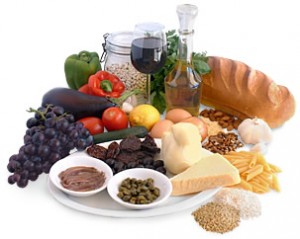 Back in the 90’s there was no question about “fats”. Simply all fats were bad for you. And because of the lack of research in this subject matter, most doctors probably instructed you to stay away from them.
Back in the 90’s there was no question about “fats”. Simply all fats were bad for you. And because of the lack of research in this subject matter, most doctors probably instructed you to stay away from them.
But with new studies being performed things have gotten a little more complicated these days when it comes to the pros and cons of fats in your diet.
That’s why I would like to take a few moments of your time to set the record straight. First, we now know that your body needs fat. Without the right amount of fat in your body, you’ll feel hungrier, you’ll have less energy, and you’ll likely store more fat reserves.
Second, we now know that animal fats in moderation are good for you, especially if you choose meat from animals that are grassfed.
Third, we now know that some plant fats are good and some are not so good. Polyunsaturated fats from things like corn and soybean oil have been linked to a number of health problems including heart disease, while other polyunsaturated fats and monounsaturated fats have a protective affect.
The bottom line is that a balance of vegetable fats is important to your diet. And if you get too much of one kind and not enough of another, you’re bound for health problems.
Since most of my patients are confused about what plant fats are good and which are not, I’m going to share with you some general guidelines that will help you make healthy choices when it comes to plant fats.
Unraveling the Vegetable Fat Mystery
So, here we go—my steps to choosing healthier vegetable fats:
1. Last week I told you about medium chain triglycerides. These saturated fats found in coconuts and in palm oil actually give your health a boost. My first recommendation is to get rid of any foods in your house that use partially or fully hydrogenated oils. Choose alternatives that use palm or coconut oil instead. (For example, for the longest time, finding a good peanut butter that wouldn’t separate and that didn’t use partially hydrogenated oil was impossible—now there are several tasty varieties that use palm oil.)
2. Most people know that vegetable fats are usually either polyunsaturated or monounsaturated. The monounsaturated fats are linked to good heart health—they are the ones you’ll find in a Mediterranean diet. Olive oil is rich in monounsaturated fat. Choose olive oil for anything that doesn’t require cooking… salad dressings and dips, for example.
3. Polyunsaturated fats come in two main varieties—omega-6 fatty acids and omega-3 fatty acids. Most people get about 20 times as much omega-6 as they do omega-3. A more even ratio somewhere between 3 to 1 and 1 to 1 is much healthier.
The typical vegetable oils like corn, soybean and safflower oil are loaded with omega-6 fatty acids. Flaxseed oil and nut oils have more of the beneficial omega-3 fatty acids. As much as possible, in your own cooking and in the processed foods that you buy, try to choose omega-3-rich oils over those packed with omega-6s.
4. When it comes to cooking, choose coconut oil. Try to avoid polyunsaturated oils that are unstable when heated and can add some unhealthy byproducts to your food.
By following these four simple steps, you’ll begin to create a favorable balance of heart healthy fats that will give your body plenty of energy and leave your feeling good about the foods you eat.
Stay well,
Mark Rosenberg, MD
photo credit: mrmediterraneandietrecipes.com
